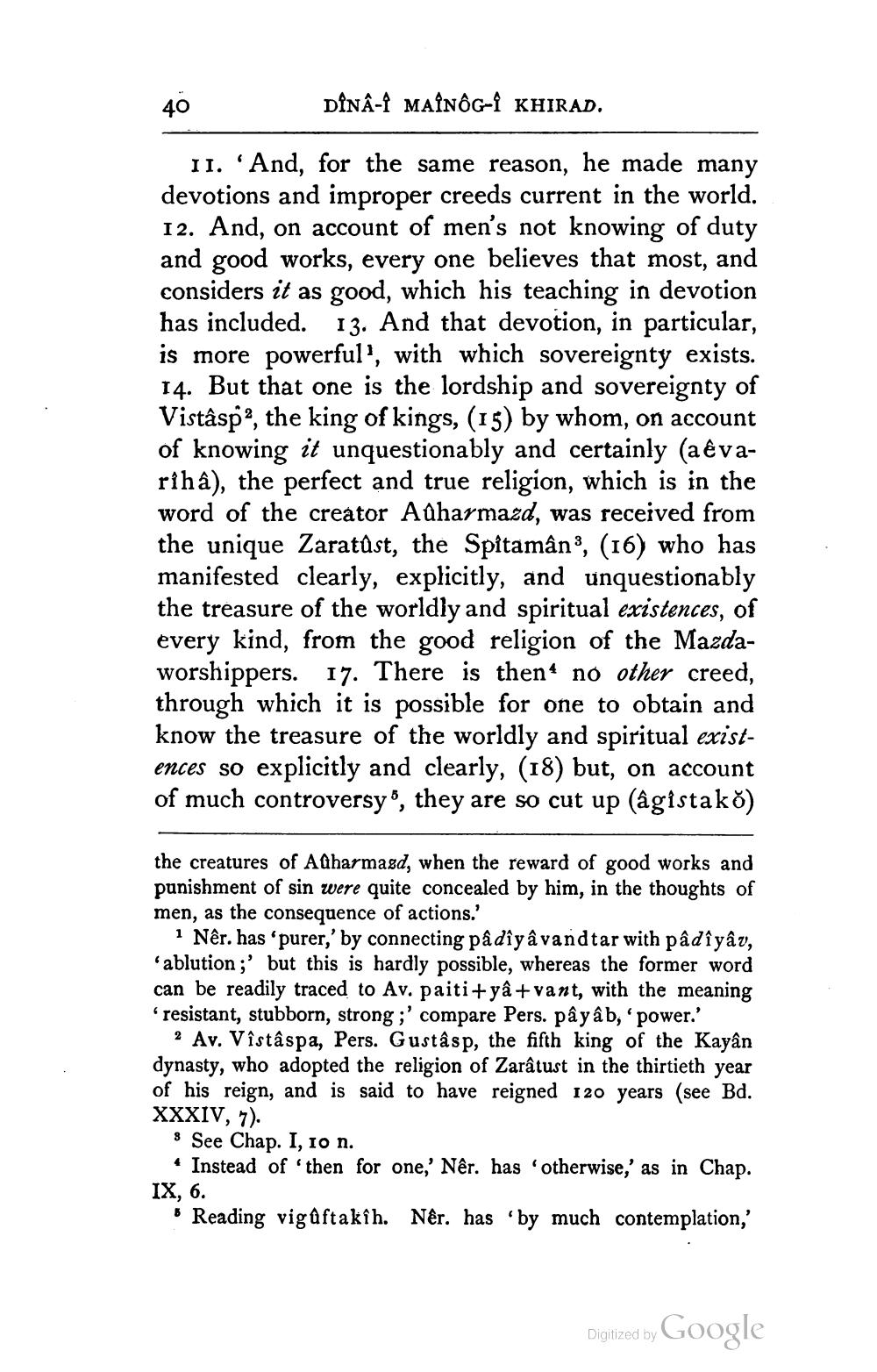________________
DÎNÂ-I MAINÔG-Î KHIRAD.
11. 'And, for the same reason, he made many devotions and improper creeds current in the world. 12. And, on account of men's not knowing of duty and good works, every one believes that most, and considers it as good, which his teaching in devotion has included. 13. And that devotion, in particular, is more powerful!, with which sovereignty exists. 14. But that one is the lordship and sovereignty of Vistâsp, the king of kings, (15) by whom, on account of knowing it unquestionably and certainly (aêvarihâ), the perfect and true religion, which is in the word of the creator Adharmazd, was received from the unique Zaratûst, the Spitamân”, (16) who has manifested clearly, explicitly, and unquestionably the treasure of the worldly and spiritual existences, of every kind, from the good religion of the Mazdaworshippers. 17. There is then“ no other creed, through which it is possible for one to obtain and know the treasure of the worldly and spiritual existences so explicitly and clearly, (18) but, on account of much controversy, they are so cut up (âgistako)
the creatures of Adharmagd, when the reward of good works and punishment of sin were quite concealed by him, in the thoughts of men, as the consequence of actions.
1 Nêr. has 'purer,' by connecting på dîyâvandtar with pâdîyâv, ablution;' but this is hardly possible, whereas the former word can be readily traced to Av. paiti+ya+vant, with the meaning resistant, stubborn, strong;' compare Pers. pâyâb, power.'
2 Av. Vîstâspa, Pers. Gustâsp, the fifth king of the Kayân dynasty, who adopted the religion of Zaratust in the thirtieth year of his reign, and is said to have reigned 120 years (see Bd. XXXIV, 7).
8 See Chap. I, 10 n.
• Instead of then for one,' Nêr. has otherwise,' as in Chap. IX, 6.
* Reading vigûftakih. Nêr. has 'by much contemplation,'
Digitized by Google




